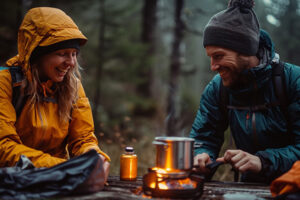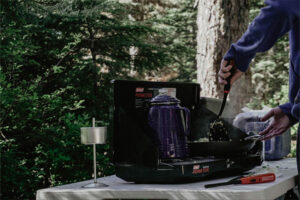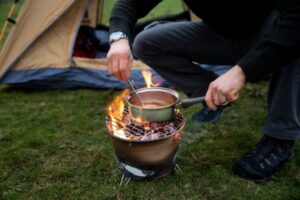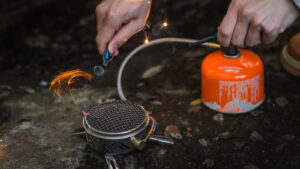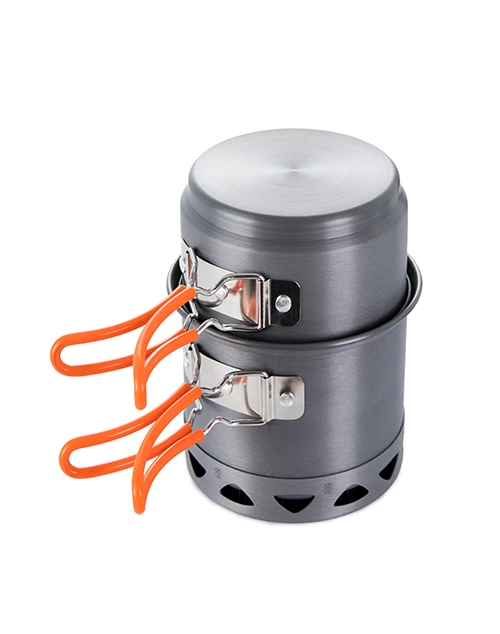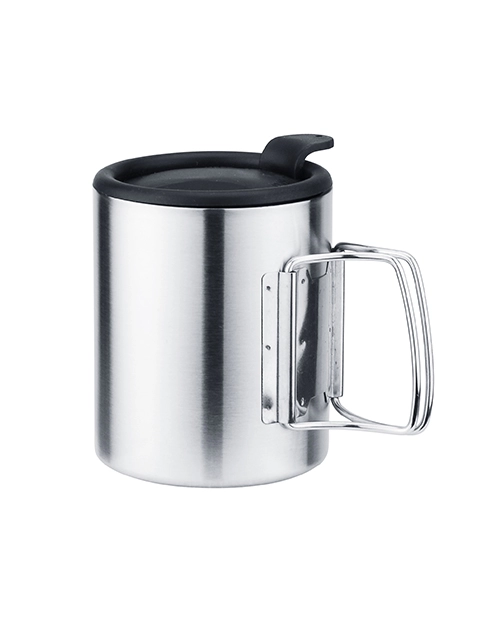Winter Camping Stove Essentials: Everything You Need to Know
Share:

Get ready to learn how to cook in cold weather and make your winter camping experience fun.
Choosing the Best Winter Camping Stove
The right winter camping stove is what defines camping in cold places, either as a success or failure. Ensure that these factors are considered when buying the perfect stove for your needs:
Type of Fuel:
Propane or butane is used by canister stoves; they are lightweight but burn less efficiently in extremely cold weather. Liquid fuel stoves mainly burn white gas or kerosene, which performs excellently at low temperatures and high altitudes.
Wind Resistance:
Flames can be put out easily by winter breezes. Select a stove with a windscreen or purchase one separately.
Stability:
An unstable backpacking tent is not worth it. A broader bottom and strong stands prevent accidents.
Simmer Control:
Temperature control is very useful in kitchen cooking. Some alternatives have better simmer control than others.
Weight and Portability:
Performance should be weighed against weight. These stoves are heavier but may work better during the winter at the expense of adding more weight to carry.
Ease of Use:
When you have gloves on, you need simple controls. Some stoves that come with large knobs and easy ignitions are preferred.
Compatibility:
You must ensure the stove fits your existing cookware. A few stoves require specific pot sizes or shapes.
Fuel Efficiency:
Lighter packs mean efficient stoves that use less fuel on long hikes with fewer refills.
Durability:
The unpleasant winter weather conditions will affect most items negatively. Pick a stove made from robust materials such as stainless steel or aluminum.
Price:
Set a budget, but always remember that quality costs painlessly step up the price range. Nevertheless, this reliable stove is a worthwhile investment for safety and comfort, especially while camping in the snow.
These considerations will help you find a winter camping stove that meets your specific requirements. The right stove for winter camping balances efficiency, convenience, and performance based on your unique style of camping during this season.
The Various Kinds of Winter Camping Stove:
 Canister Stoves:
Canister Stoves:
In fact, they are very light and convenient to use. They will fire instantly and have exact fire control. However, they perform poorly in extremely cold weather because the gas pressure drops too low. For safe winter usage, keep the canister inside your sleeping bag if possible. In order to increase their performance during cold weather conditions, some models feature an inverted canister design.
Liquid Fuel Stoves:
During the winter, these stoves are perfect for camping. It is good at higher elevations, as well as when it’s below freezing. White gas burns hot and clean, which makes it suitable for use in camping during the winter months. Liquid-fuel stoves require priming but offer easy lighting once warmed up.
Alcohol Stoves:
These are very popular among minimalists who want something ultralight and simple, like alcohol stoves, for cooking while away from home but not during cold seasons since their heat output is low, making boil time longer than needed. Also, the burning efficiency of alcohol decreases with a temperature drop.
Considering specific needs, duration of a trip, and expected forward condition, select the type of stove for winter camping. Each kind has its own pluses that differ from those provided by other types.
Wood-Burning Stoves:
There is no need to carry any fuel with wood stoves. They work best in places where there is plenty of dried wood available around them. Nevertheless, they are less certain when the weather is wet and might be restricted from some camping areas due to fire policies.
 FAQs about Winter Camping Stove:
FAQs about Winter Camping Stove:
Can a canister stove be used safely for Winter Camping Stove?
Certainly, canister stoves can safely be used for winter camping if you take some precautions. Make sure the canister stays warm in your sleeping bag. For improved performance, use an inverted canister stove model. Additionally, protect the burner from strong winds.
What are some maintenance tips for a winter camping stove for optimal performance?
Always make sure that you keep a clean stove. You should also check and replace O-rings and seals whenever necessary. Furthermore, remove all debris from the fuel lines before using the stove. Ensure that the stove is working properly before going on any trip. Fuel storage should be done correctly so as to avoid contamination of this substance by others, especially when one is not using it for a long time.
What is the best liquid fuel stove for winter camping with easy lighting?
The MSR WhisperLite International is excellent for winter camping because it’s versatile, dependable, and lights easily in cold conditions. The other features include its ability to burn many fuel types, stability while holding heavy pots, and outstanding performance under harsh conditions.
Conclusion Winter Camping Stove:
The winter camping needs a stove that can fit in. In very cold regions, it is difficult for the canister stoves to function well. It performs best at colder temperatures and higher altitudes. Look at the type of fuel used, its ability to withstand wind, its stability, and how easy it is to use when selecting a stove. For you to get the best output from them every time they are used. Canister stoves should be kept warm, while liquid fuel stoves need priming. Make your selection based on specific requirements because each type has its own merits.
ODM service
Looking for reliable camping stove supplier? At Deermaple, we specialize in ODM service, offering high-quality, innovative titanium stoves tailored to your needs.
If you are interested in camping stove wholesale , please contact us.
Disclaimer: This blog may contain user comments, opinions, and other user-generated content. We are not responsible for the accuracy, reliability, or opinions of user-generated content. User-generated content represents the opinions of the individual authors only and does not reflect the views of this website.
clarachen
Related Posts
Related Products
No products found.

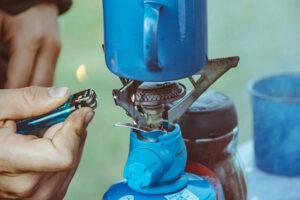
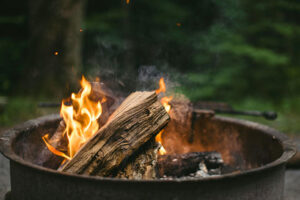 FAQs about Winter Camping Stove:
FAQs about Winter Camping Stove: